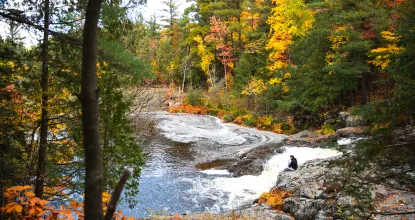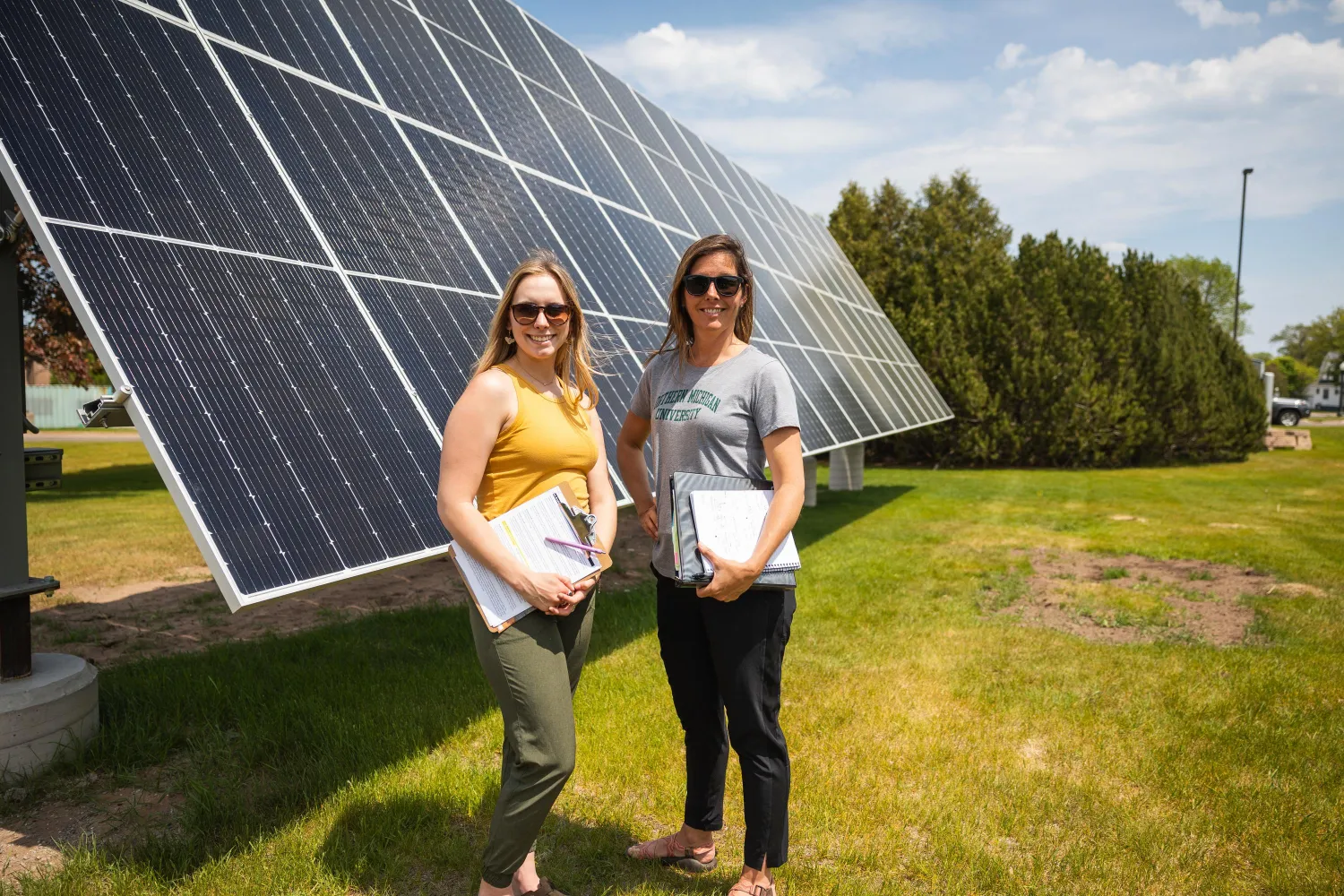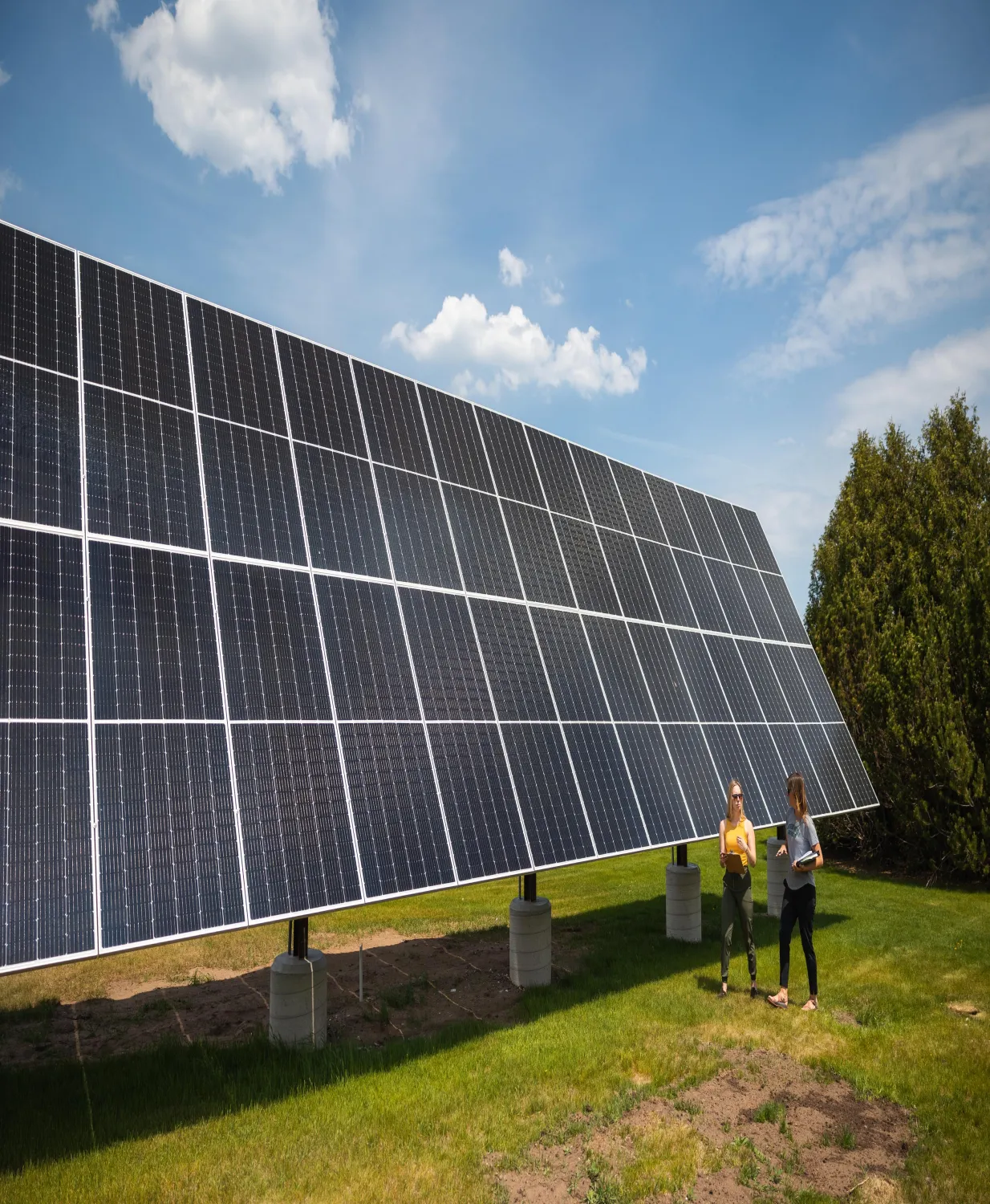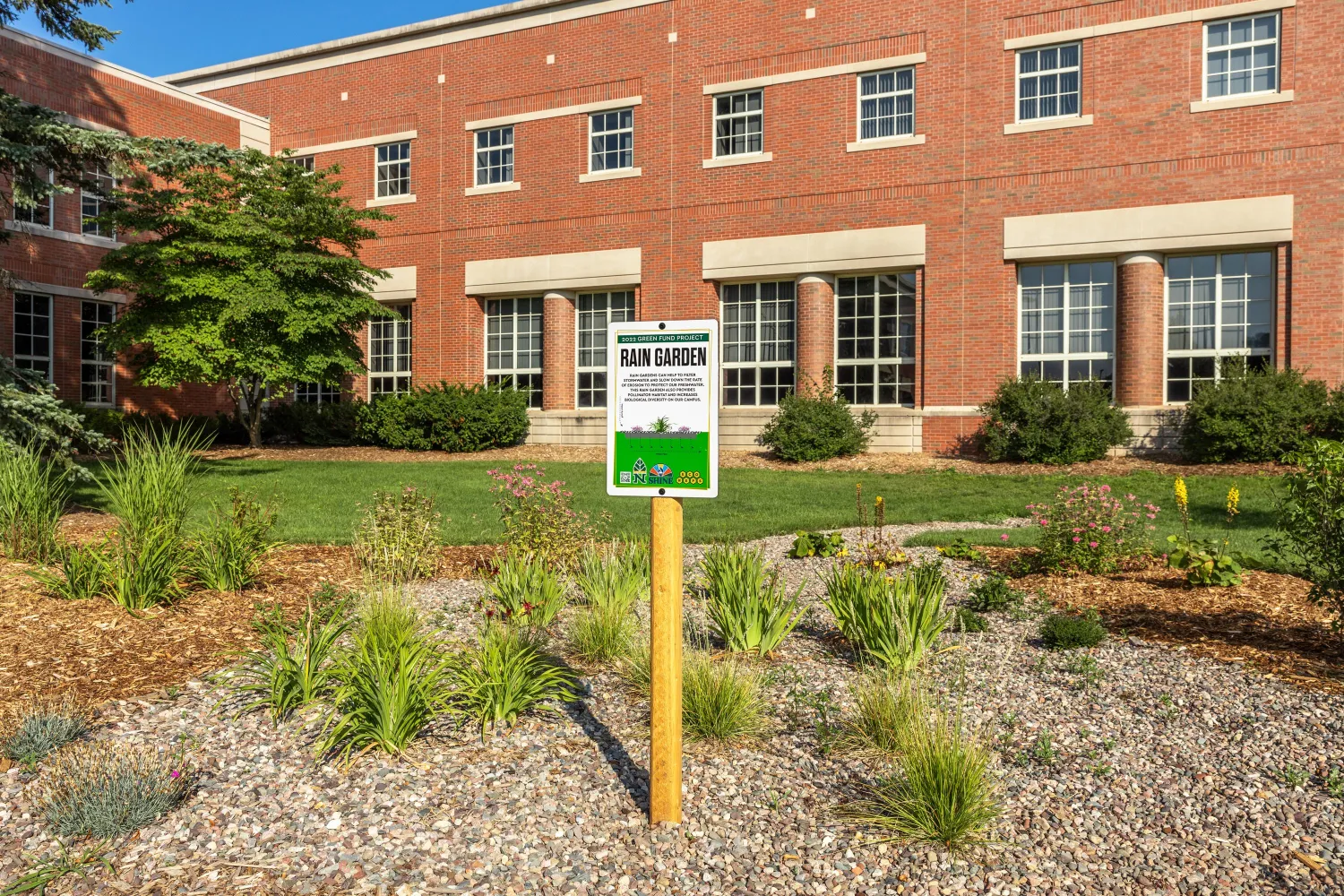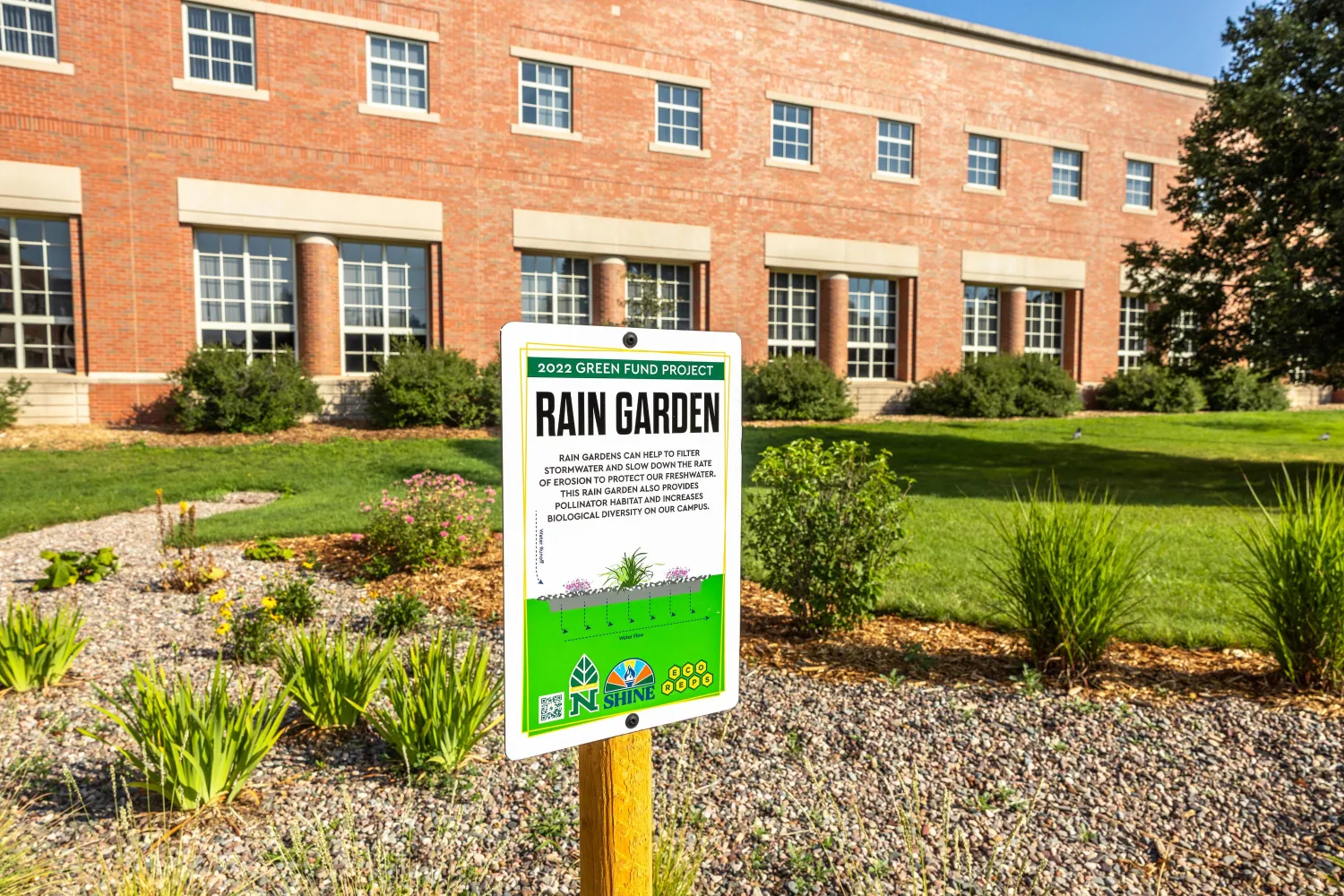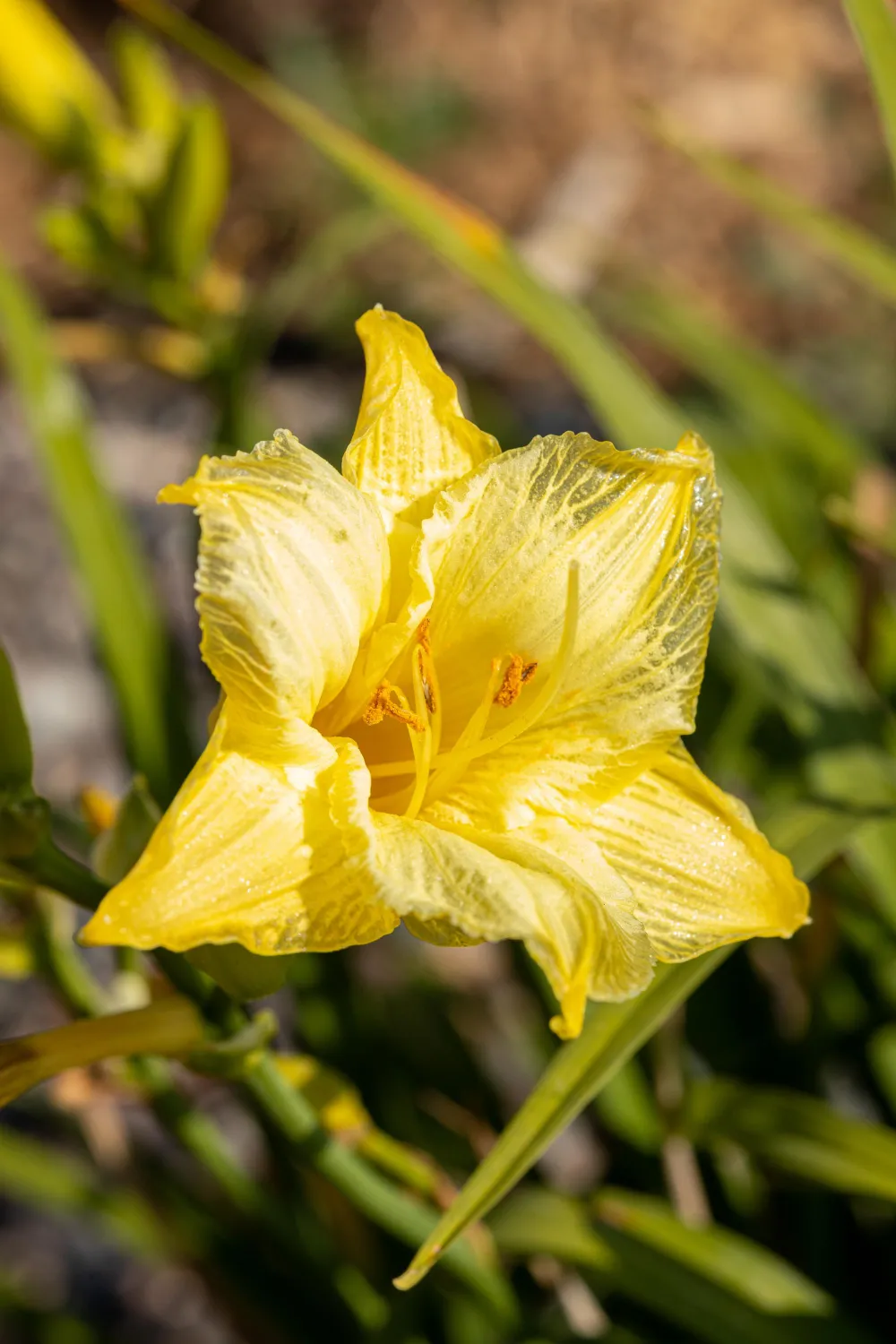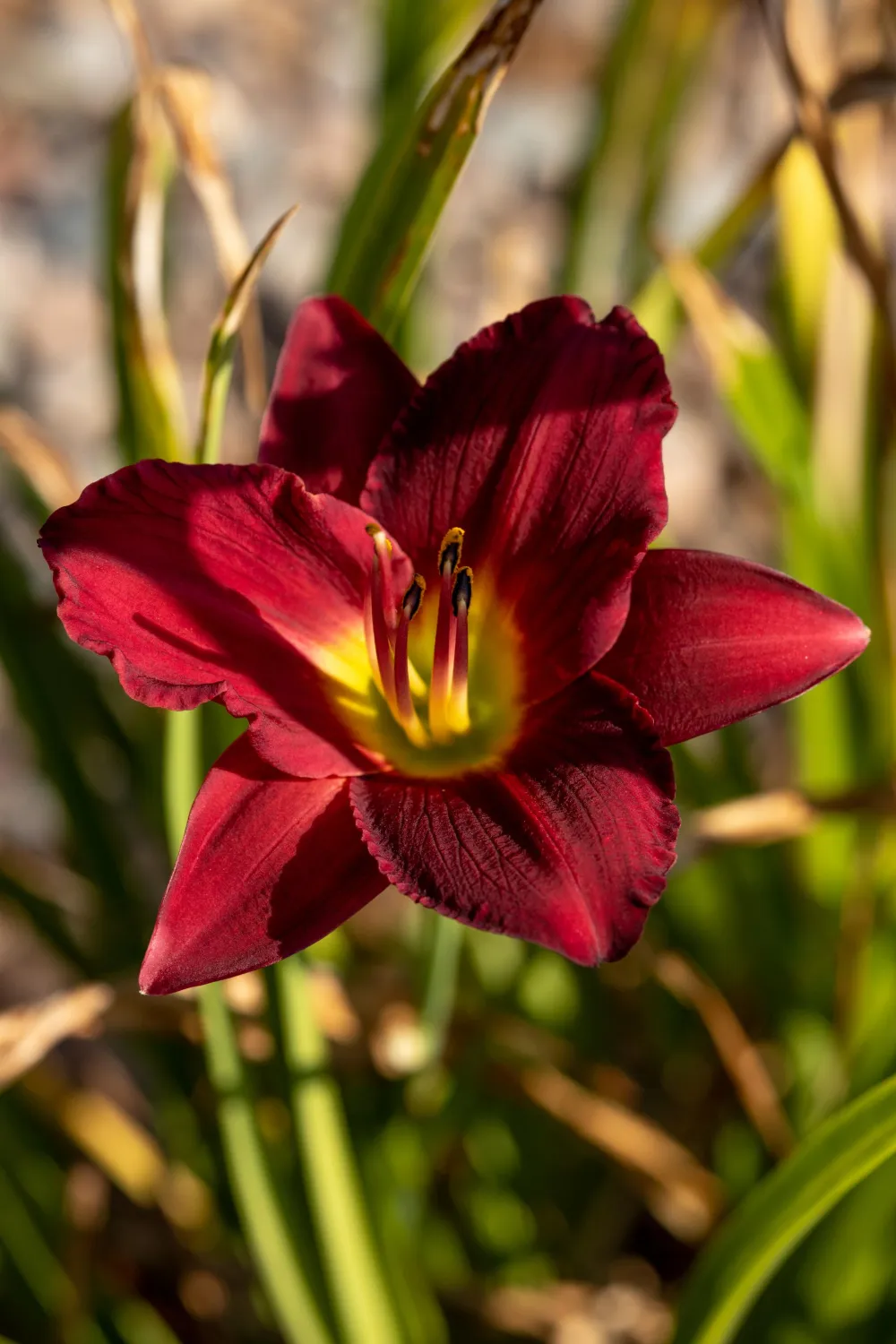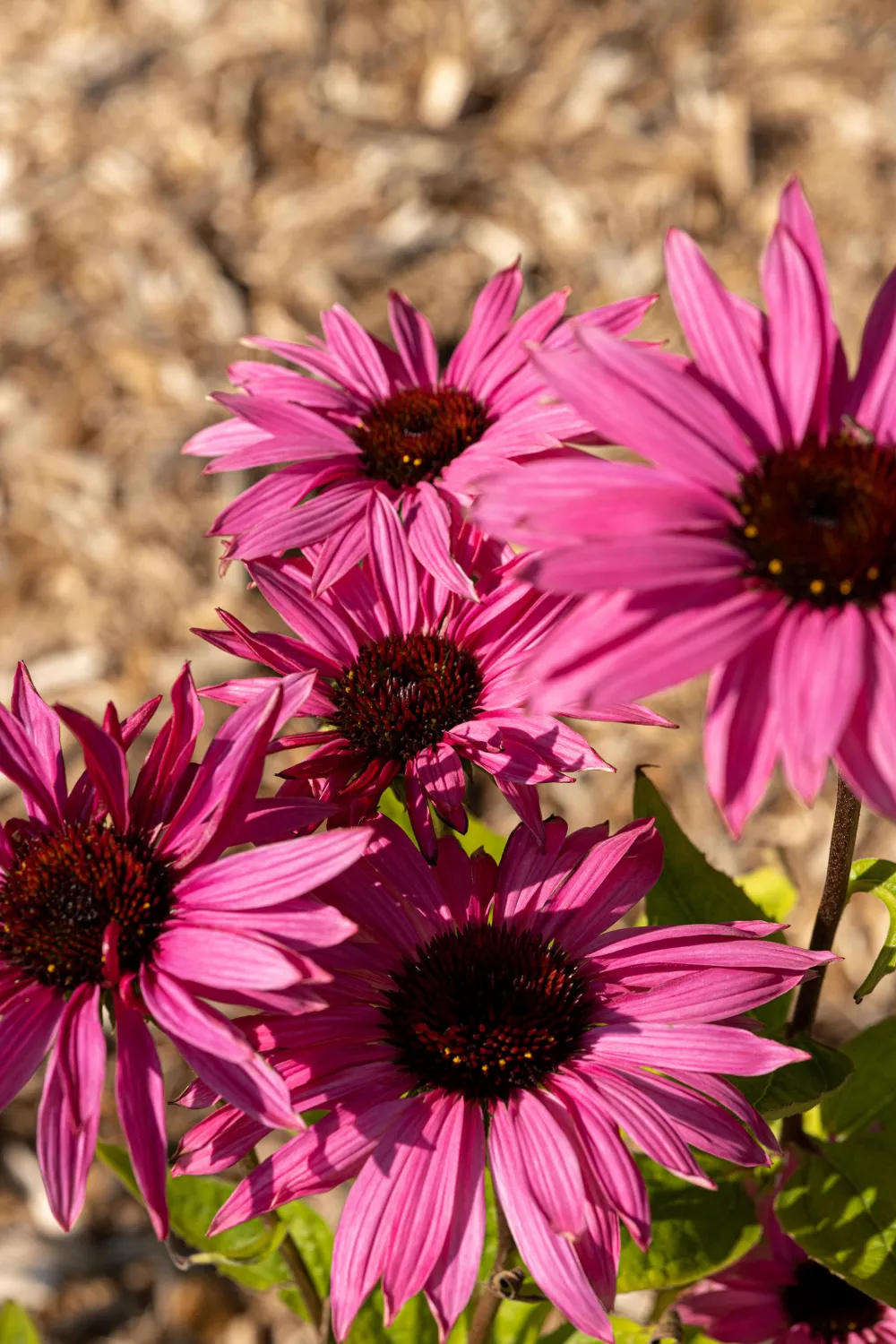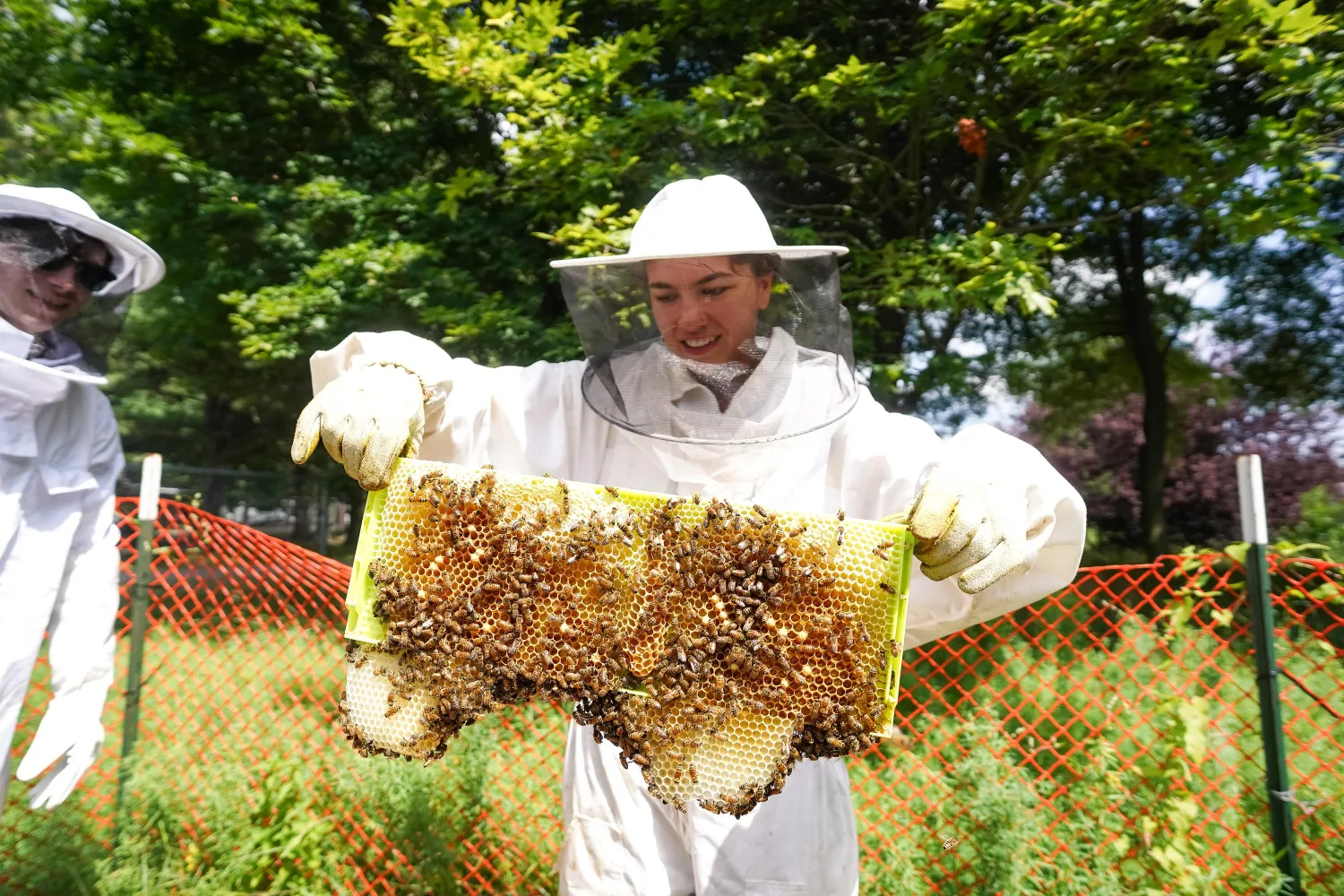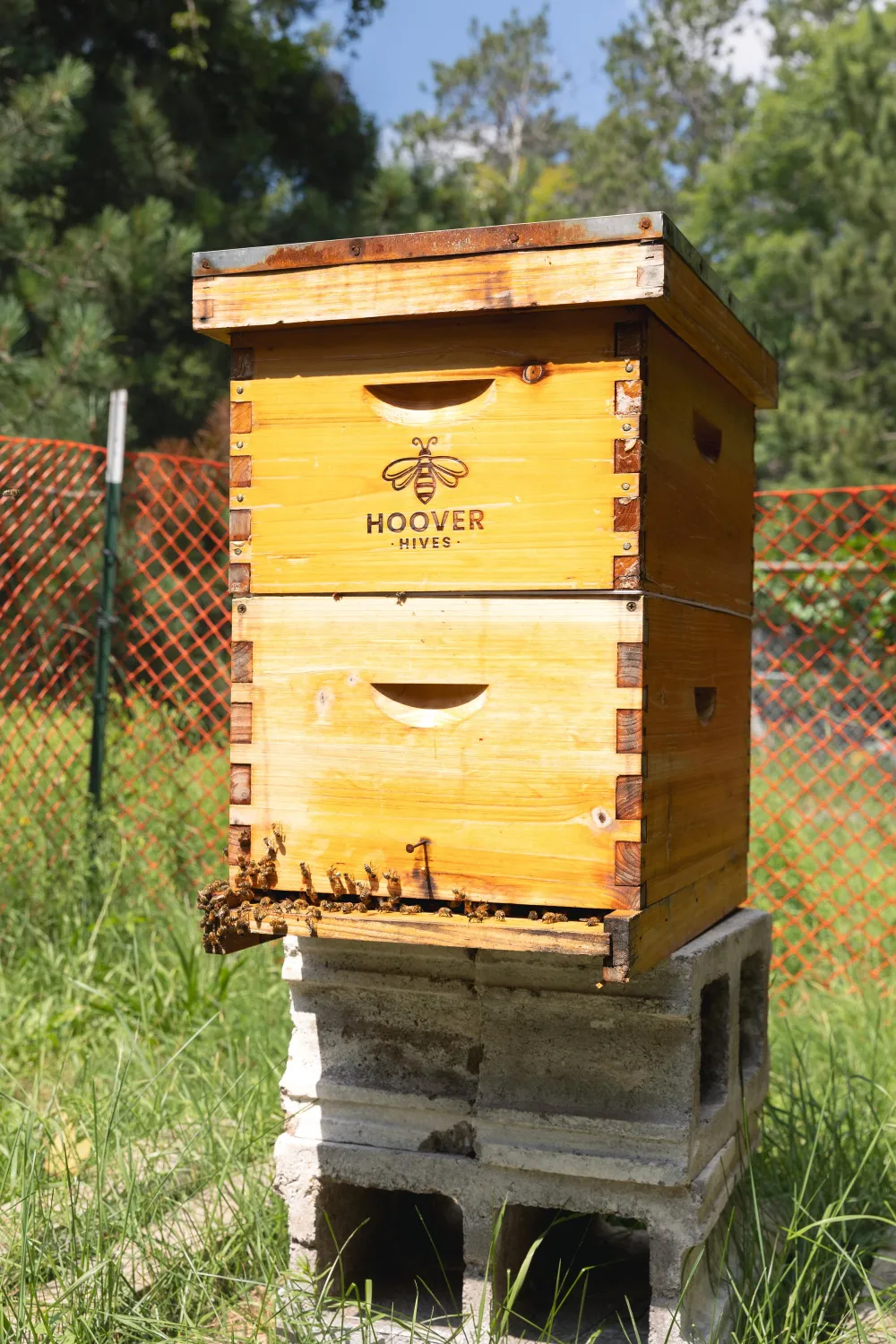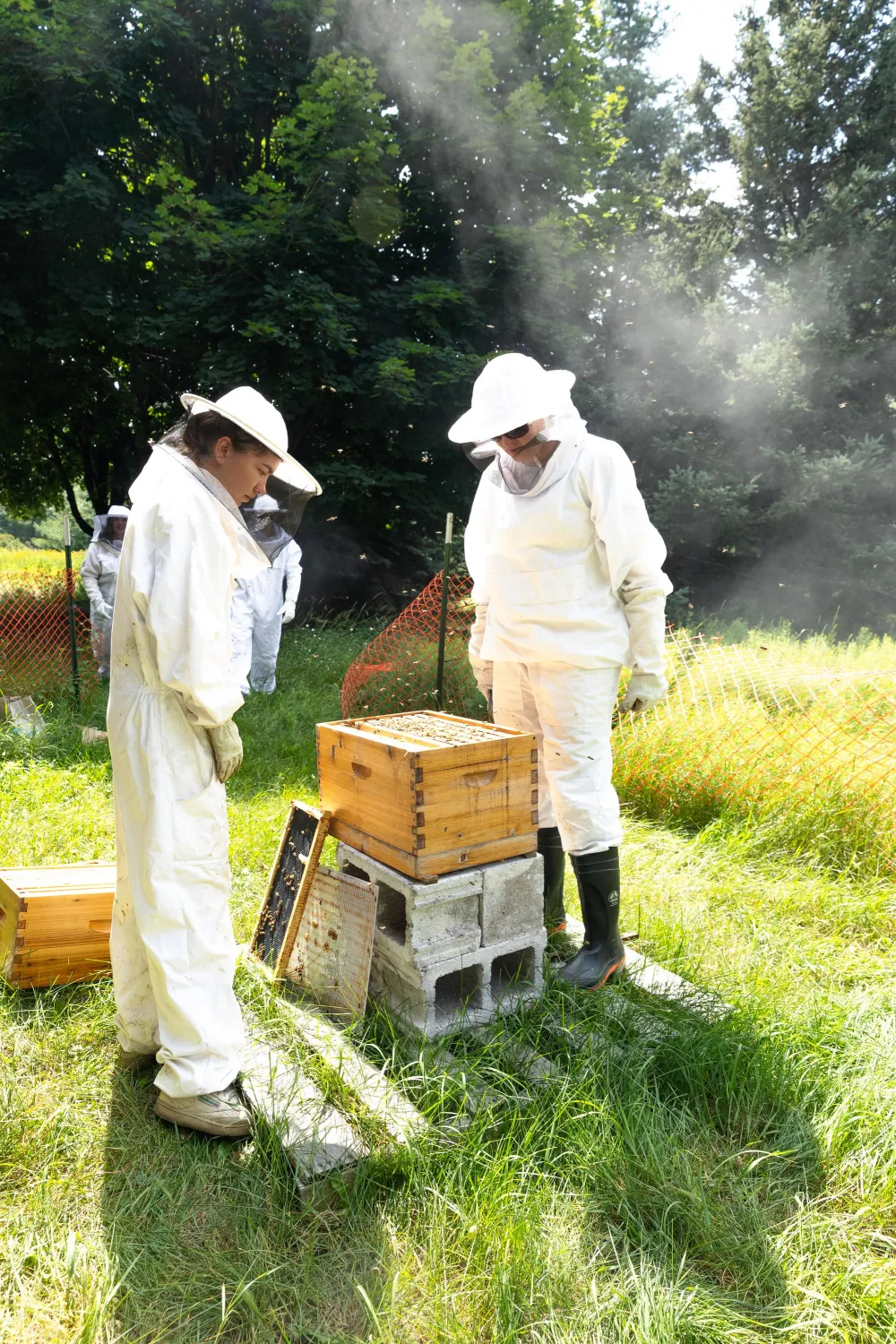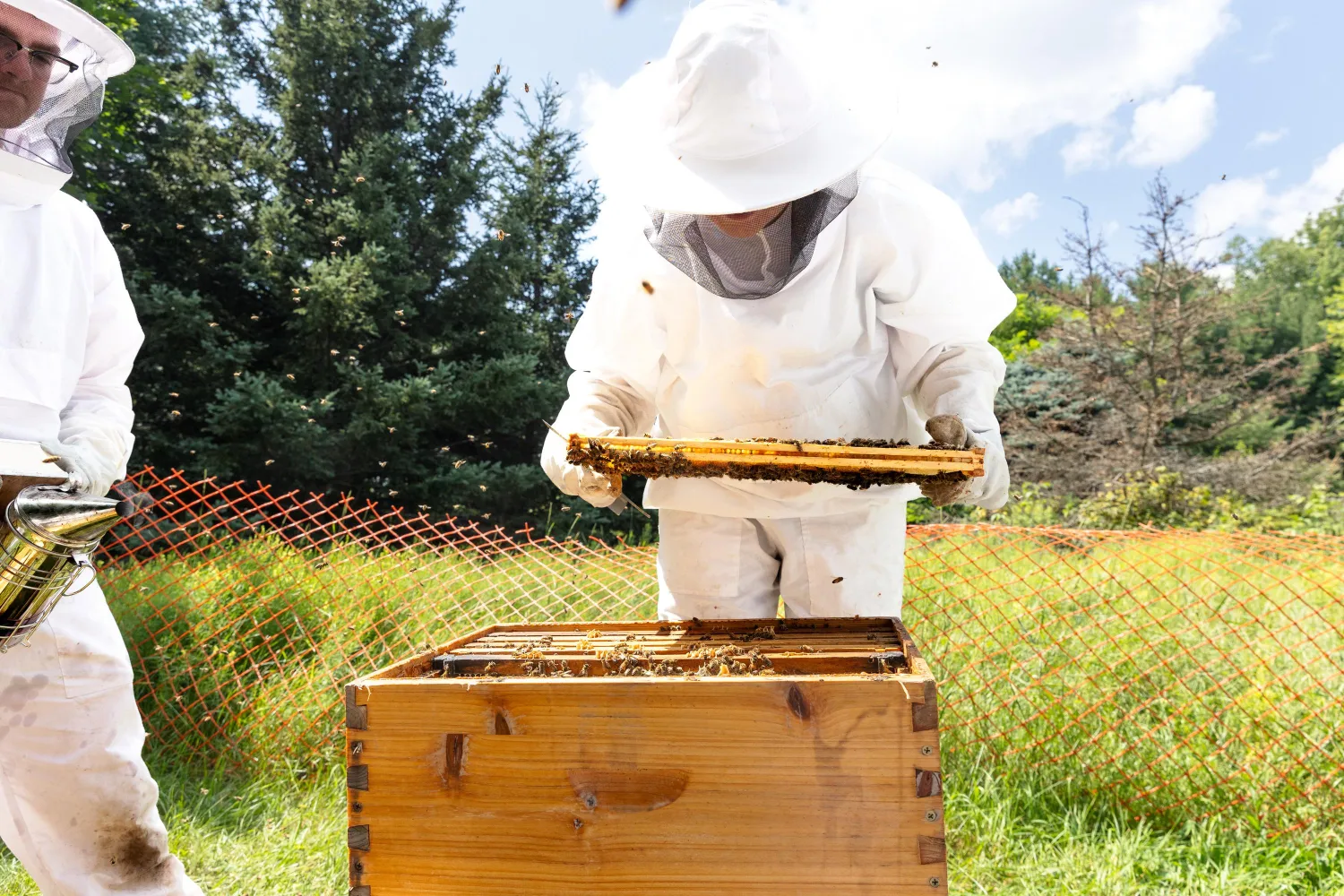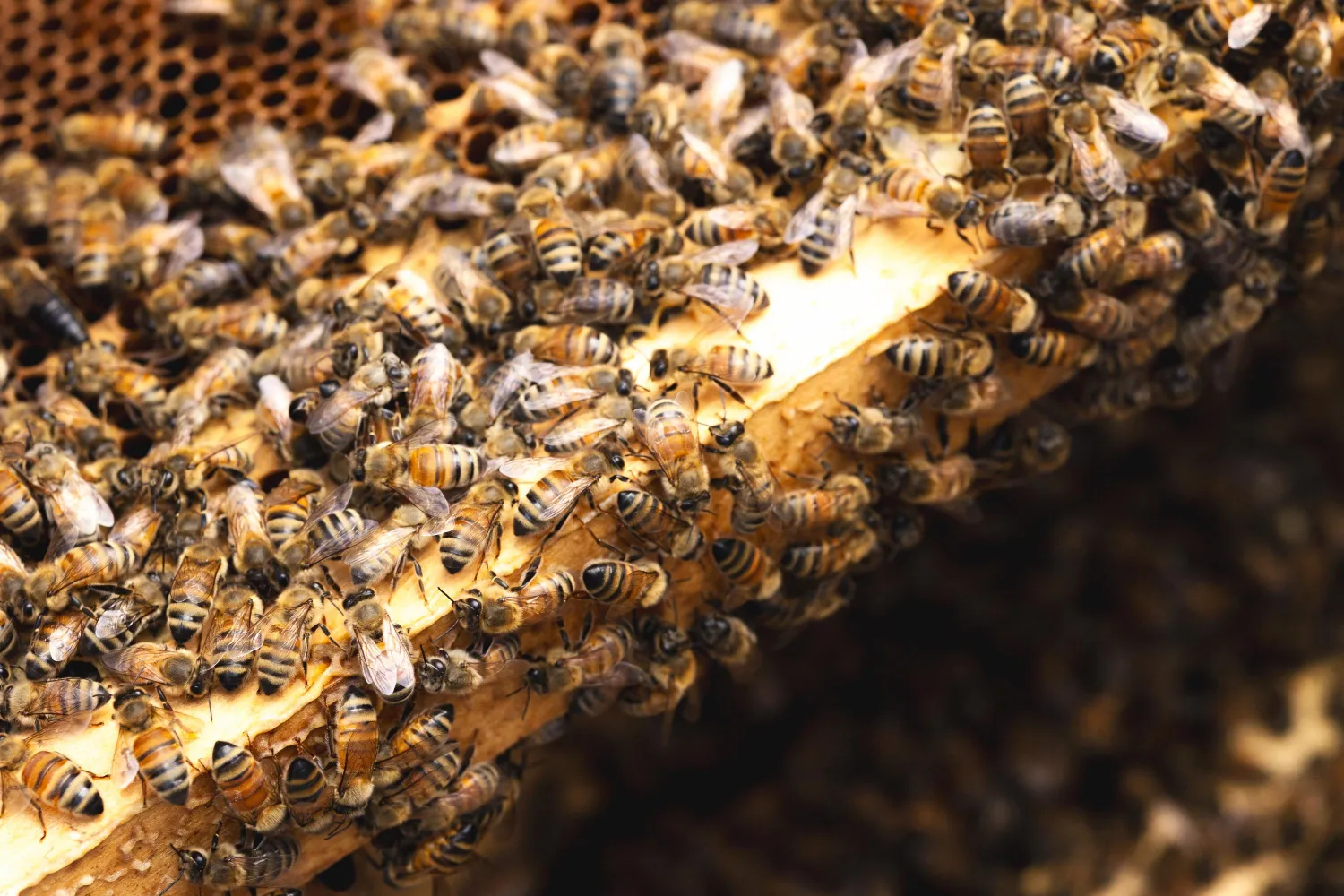What is the Green Fund?
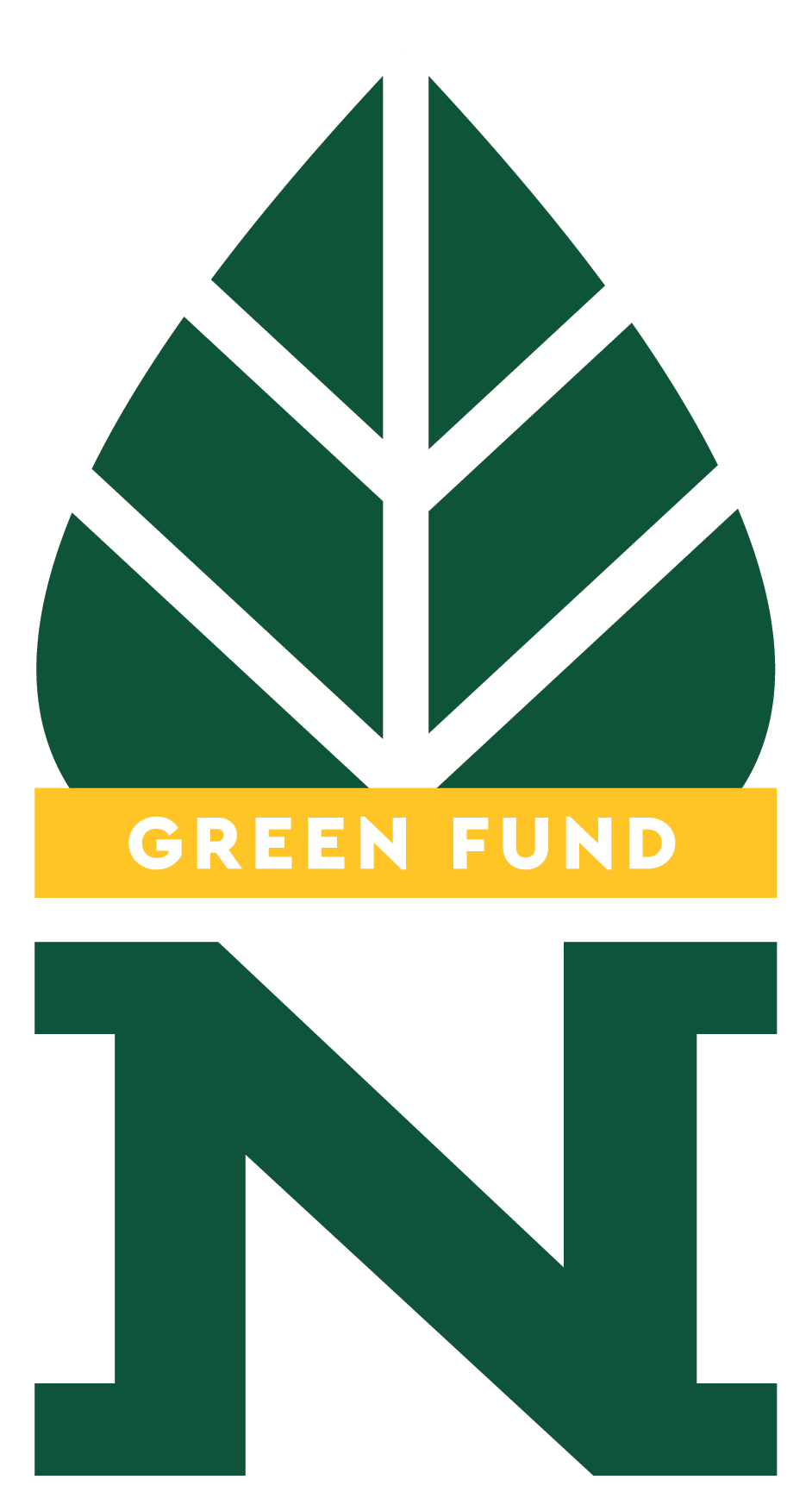
The Green Fund is a student-paid fee that funds sustainable student-led initiatives on campus. Any student can submit a proposal to improve sustainability at NMU! Please note that the Green Fund is not a grant.
Click our button below and submit a Green Fund Proposal for a sustainable change on campus. EcoReps review Green Fund submissions every fall, with approved projects to be implemented the following fall. You can submit a project at any time, but they will only be reviewed once a year. The Green Fund submission form will close on November 21st, 2025 at 11:59 PM.
For any specific questions regarding the Green Fund email EcoReps ecoreps@nmu.edu or Green Fund Intern, Mattea Muscat at mmuscat@nmu.edu
The Green Fund at Northern Michigan University is the result of a grassroots campaign initiated by dedicated students in 2016. Originally proposed by Nathan Frischkorn and Julia Schroeder, the fund's objective was to support socially, economically, and environmentally sustainable initiatives and activities on campus.
After gaining significant support from the student body, the Green Fund was officially established in 2018 through an opt-out fee of $5 per student. This fee provided resources for the EcoReps Program, a Student Sustainability Educator initiative, and later, projects promoting sustainability on campus. Overwhelming student support and successful sustainability efforts led to the Board of Trustees' approval of the Green Fund in the summer of 2020, with the first tuition bills including the fee implemented in the Fall of 2020. Today, the Green Fund continues to play a vital role in advancing sustainability initiatives at NMU through a carefully structured process.
Northern’s newly instituted Green Fund Fee will generate about $50,000 per year for sustainability efforts. The following process has been approved for the annual management of the fee.
Funding Process
Step 1: EcoReps will develop proposals for the Green Fund Fee, understanding that all costs related to the operations of EcoReps and all sustainability efforts must not exceed $50,000 annually unless carry-forward funds are available from previous years. Each proposal must be presented in a 1-3 page concept paper, including any known timeline and budget elements. The paper must explain how the sustainability project/initiative supports NMU's mission, vision, core values and/or strategic plan, and it must provide information on how it benefits current or future NMU students and the long-term sustainability of the university. To clarify, a proposal requesting funds to support operations of EcoReps should be submitted separately from proposals for specific projects.
Step 2: The EcoReps’ Green Fund Fee proposals would go to the NMU Sustainability Advisory Council, which has student, faculty, staff, administration and community representation. The Council would review the proposals, add additional commentary (more information on timeline, costs, benefits, etc.) and prioritize the projects, initiatives, and operations in a funding recommendation that would go to the President’s Executive Council.
Step 3: Prior to submission to the President’s Executive Council, the funding recommendations will be provided to the VP Finance office for initial review, and the recommendations may be sent back with questions or comments related to the budgets.
Step 4: The President’s Executive Council would review the Sustainability Advisory Council's recommendation of priorities and approve it or send it back with questions or comments.
Step 5: Some aspects of a Green Fund Fee recommendation may need Board of Trustees approval, but most will be university operations and not need BOT approval. However, the BOT will be kept informed of the sustainability efforts.
Annual Timeline
EcoReps develop proposals for the following academic year (i.e. 2022-23) during fall semester (i.e. fall 2021). Beginning in Fall 2021, proposals must be submitted to the Sustainability Advisory Council by end of November. Fiscal year 2021-2022 proposals must be submitted to the Sustainability Advisory Council no later than February 5, 2021. The Sustainability Advisory Council reviews proposals and forwards its recommendation to the Executive Council by the end of February. The President’s Executive Council reviews and approves or returns by end of March. April is used for fine-tuning proposals. Distribution of funds to the appropriate University unit would be made in the fall semester.
Financial Oversight
The Finance and Budget Office will manage and disperse the Green Fund Fee to the appropriate unit(s) overseeing the sustainability projects, initiatives, and operations as part of the University budget process. The Finance and Budget Office will develop the needed reporting tools to manage accountability of the fee usage.
Year 1 - $45,075 was collected; $27,415 in Fall 2020 and $17,660 in Winter 2021
Year 2 - $50,000 was collected in Fall 2021 & Winter 2022
2022 Green Fund Funded and Implemented Projects:
Solar installation at 1400 Presque Isle Avenue $50,000 (bid was $49,901.60)
Rain Garden (complete) $4,000 (spent $3,993.41)
Clover Lawn (complete) $2,500 (spent $1,753.05)
Beekeeping Equipment $4,500 (spent $759.66)
Composting $2,000 (nothing spent to date)
Total Designated for 2022 Projects $63,000
Year 3 - $25,000 in Fall 2022 & $23,000 is predicted for Winter 2023
2023 Green Fund Funded & Implemented Projects:
Budget balance (as of October 2022)
EcoReps - $9,118
Green Fund - $44,000
Number of ideas submitted thus far:
Fall 2020 - 1 informal proposal (LED lighting transition) - not funded
Fall 2021 - 13 ideas submitted - 5 funded
Fall 2022 - 15 ideas submitted - 5 funded
Winter 2023 - 6 ideas submitted (as of May 2023)
NMU Composting Initiative (2022); Proposed by Zoe Tardy
NMU Dining is collaborating with Recycle 906 to develop an industrial-scale composting system that will bring NMU’s organic waste to be composted at the Marquette County Landfill. Funds will help to cover the cost of the container, labor and maintenance. This will contribute to the goal of Improving Waste and Recycling Efforts that was identified in Northern 2030, NMU’s latest sustainability plan.
Solar Array (2022); Proposed by Kendall Phillips
Investing in renewable energy is one of the key ways that NMU will achieve its commitment to carbon neutrality by 2050, and investing in solar energy was identified in Northern 2030 as a key priority. Installing a solar array on campus will be an important symbolic indicator of NMU’s commitment to sustainability, and will also help to wean the institution from its dependence on fossil fuels. We propose to install a solar PV array at the new SHINE (Sustainability Hub for Innovation & Environment) building. The Facilities Department is working with solar developers to determine the appropriate size and cost of a solar array for the SHINE building. SAC recommends that $25,000-$65,000 of the green fund be put towards the proposed installation at the SHINE building. Funds will help to cover the cost of infrastructure, labor and maintenance.
Clover Lawn (2022); Proposed by Joslin Brown, Julius Haas, Elise Longley, Makena Ridiros, and Mike Vallin
To reduce the environmental and financial costs of maintaining turf grass over large areas of campus, Northern will experiment with the creation of a clover lawn. Since West Hall will be demolished summer 2022, the Grounds department can try the clover lawn plot in that area since it will need to be restored. Funds will help to cover the cost of seed, labor and maintenance. This could create educational and research opportunities for biology and soils classes, which contributes to the goals of Promoting Education and Awareness, as outlined in Northern 2030.
Beekeeping Club and Certificate Program (2022); Proposed by Hayden Croff, Cece Hogan, Aleda Miller, and Elizabeth Williams
Interest in food systems has been growing at NMU in the past few years. From new programs on Indoor Agriculture to volunteer opportunities at the Hoop House, there is a growing demand for more food-related education and hands-on training. Creating a bee-keeping program at NMU will be a great contribution to this important and growing trend on campus.
Dominick Dotson worked with faculty Dr. Maris Cinelli to establish these beehives as part of a McNair Scholars project in 2021. Then in 2022 a group of students submitted a Green Fund proposal to keep the beehives thriving as an educational resource on campus. This project was proposed by students Cece Hogan, Hayden Croff, Aleda Miller, and Eli Williams.
Rain Garden (2022); Proposed by Emily Eckel, Eva Peterson, Anni Skillicorn, Bailey Swanson
The Grounds Department will implement rain gardens on campus, location TBD. Rain gardens can help to mitigate stormwater management and contribute to ecological diversity on campus. Funds will help to cover the cost of the gardening materials, labor and maintenance.
Biodiversity Lawn on Tracy Ave. (2023); Proposed by Anna Borovich, Jacob Fewkes, Isabelle Honkomp, Madelyn Mays, and Casey Stevens
We propose that Northern Michigan University make changes to its landscape management to increase campus biodiversity, reduce fertilizer use, reduce fossil fuel use, and create more usable areas for student leisure on campus. Specifically, we propose to turn a small plot of steep land along Tracy Avenue into a native plants area with signage to explain the importance of plants for pollinators.
Clothing Donation Bins & Clothing Swap Supplies (2023); Proposed by Miki Rogers
Eco reps is known for hosting clothing swaps each semester. At these swaps we get many questions regarding places to donate clothing. In order to keep worn clothing from entering into the landfill, we propose a place on campus designated for students to drop off clothing. Students would be able to drop clothing into this bin throughout the semester, and eco reps would use these clothes at our recurring clothing swaps.
Food Pantry Freezer & MiniFridge (2023); Proposed by Molly Anderson, Isabella Debord, Bobbi Hartmann, Trevor Lewis, and Diane Reminder
Northern Michigan University’s food pantry strives to provide those a part of campus in need with a resource to free food and personal care products. Currently, the pantry runs off mainly sporadic donations of food products, as well as grants and funds to buy new products. The bulk of the food the pantry has available are dry goods, but the recent addition of a mini fridge has allowed for some fresh vegetables to also become available. Unfortunately, due to a lack of larger scale freezer the pantry does not have a way to long-term store fresh vegetables, eggs, milk or meats.
Power Strip Give Away (2023); Proposed by Blake Broxson, Sarah Gimpl, Keale Kaolulo, Mari McClure, and Colby Sutherland
The goal for this sustainability project is to limit energy consumption in the residence halls and offices at Northern Michigan University. Power strips, especially those with timers help to reduce phantom energy. Phantom energy is the energy that is used while an appliance is turned off, but still plugged in. When an appliance is left in stand-by mode it can continue to draw electricity. These smart power strips would be available for residents, faculty and staff to reduce consumption on campus.
E-bike Charging Station (2024); Proposed by Grace Freed, Kevin Lyon, Delaney Miller, and Joe Stahlbaum
This project is to purchase and install an E-Bike charging station to promote more biking and more sustainable transportation. With an E-Bike charging station in either the academic mall or by the dorms (where there are permanent bike storage systems, students can both charge their bikes and rent some through the university. NMU would also purchase 2-3 E-Bikes and allow them to be rented through the ORC, similar to how the fat tire bikes are rentable. These charging stations would be outside, just covered by an overhang that is already in place on campus, such as under outside one of the dorm lobbies, or under the roof of a permanent bike rack. These stations would need to be hardwired which could be taken from a nearby building (the dorms may make the most sense). If this project is successful and catches on with students, more E-Bikes and charging stations could be purchased in the future. Additionally, we have considered a solar option to eliminate the possibility of hardwiring but at the time of writing this proposal, there were no solar options on the market with 15amp plugs (which most e-bike chargers use). We have seen some from the brand Solar Synthesis, which is something to look into.
Take-out Container Recycling Machine (2024); Proposed by Mollie Haremza
Implementing a sustainable reusable take-out container program would allow students to set meals aside for later evening classes, or for times when they aren’t able to make it to the dining hall, but not create single-use waste from a take-out box. To have a program that is fully integrated with the Wildcat Express Card program, we propose the Ozzi O2GO. The budget includes the purchase of an integrated collection machine, collection bins, CSGOLD Integration, take-out containers, and racks to properly wash, sanitize, and store the containers, promotional materials, and staff training.
Recycling Education Program (2024); Proposed by Cecilia Cunningham, William Endres, Sonja O'Donnell, and Abry Waters,
Our project idea is to create a "Wildcats Recycle Responsibly" campaign that gets NMU's on-campus residents more involved in recycling the right way. We would like to work with NMU's Housing and Residence Life to spread knowledge of what to recycle and where. We would also like SHINE to add Recycle906’s Recycle Widget to the SHINE website. An entire page dedicated to recycling education would be ideal.
Textbook Little Library (2024); Isabella DeBord, Hanna DeVries, Ally Estrada, and Sophie Martin
A Little Free Library is a “take one, leave one” system. Students can bring books that they no longer use and leave them in this “little library” and take any books that seem interesting to them. The Little Library could be located anywhere on campus, ideally in the lobby of a residence hall, near the Fit Zone, and in Jamrich. Ideally, old bookshelves could be purchased from campus surplus and painted with vibrant community library colors and patterns. EcoReps and SHINE interns would be responsible for monitoring and tidying the bookshelves during the school year.
Plastic Bag Recycling (2024); Proposed by Grace Listopad
This project comes with two main focuses, one is having locations to drop off plastic bags and getting them to the correct recycling location, and the second is to educate students on how to properly recycle (posters on campus). The bag collection sites will be at each front desk, including the on-campus apartments. Students can drop off their plastic bags and recyclable plastic film. Bin will be emptied and delivered to retail drop off (Lowe’s, Kohl’s, Target, or Walmart) by an EcoRep intern.
Campus Nursery (2024) The Campus Nursery is a collaboration between NMU Grounds & Facilities & SHINE (Sustainability Hub for Innovation & Environment). The idea is an adaptation of multiple student-submitted Green Fund projects. Together, we are developing a plant nursery for growing native, nativar, and cultivated native species to use in future landscaping projects on campus. The Nursery is located behind NMU's Police Department, exactly where NMU grew a tree nursery decades ago. Today there is a 150-foot x 75-foot parcel to grow plant native trees, shrubs, and bushes. A native plant intern will help to nurture the plants until they are large enough to be used in campus landscaping projects.
